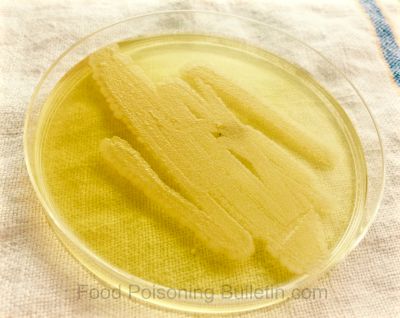Researchers at Northwestern University have discovered a new treatment for antibiotic resistant bacteria. Dr. Kim Lewis published his work in the journal Nature. The scientists have been working on “persisters” for more than ten years. Persisters are a class of cells produced by bacteria whose only function is to survive.
 The work was conducted on methicillin resistant Staphylococcus aureus, or MRSA, which infects 1 million people every year in the U.S. The bacteria has evolved to actively resist several front line antibiotics. And if they can kill this pathogenic bacteria, they can hopefully kill other antibiotic-resistant bacteria such as E. coli and Salmonella.
The work was conducted on methicillin resistant Staphylococcus aureus, or MRSA, which infects 1 million people every year in the U.S. The bacteria has evolved to actively resist several front line antibiotics. And if they can kill this pathogenic bacteria, they can hopefully kill other antibiotic-resistant bacteria such as E. coli and Salmonella.
The scientists thought that an adaptive function of the persister bacteria may be why they develop resistance. And that was true: Dr. Lewis and his team found that these bacteria enter a dormant state and reside within biofilms. Biofilms let the bacteria “communicate” with each other.
Antibiotics work by killing active cells, so they are useless against dormant persister bacteria. The team used a drug called acyldepsipeptide (ADEP) to “wake up” the dormant bacteria, which starts a self-destruct mechanisms in the cells. Adding an antibiotic “completely destroyed the bacterial population without leaving any survivors,” according to the team. Unfortunately, the bacteria do develop resistance to ADEP, but they emerge weaker and are susceptible to antibiotics such as rifampicin and linezolid.
This new line of thinking – to activate and kill bacteria, rather than “conventional inhibition” through antibiotic use – may work to treat other diseases such as cancer and other rogue cell diseases.




